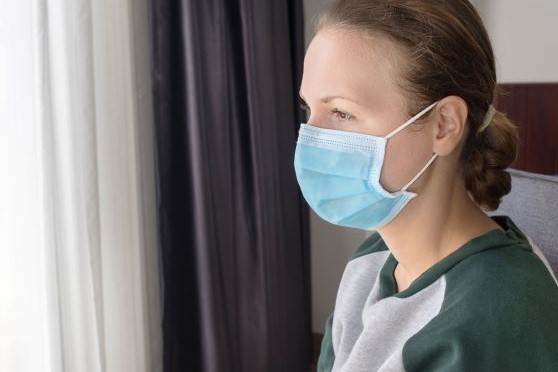An entrepreneur at heart, Chris has been building and writing in consumer life insurance and health for over 11 years. He's contributed to 1,000+ medical, health, financial and wellness articles and product reviews written in the last 11 years.In addition to Pharmacists.org, Chris and his Acme Health LLC Brand Team own and operate Diabetic.org, PregnancyResource.org, Multivitamin.org, and the USA Rx Pharmacy Discount Card powered by Pharmacists.org.Chris has a CFA (Chartered Financial Analyst) designation and is a proud member of the American Medical Writer’s Association (AMWA), the International Society for Medical Publication Professionals (ISMPP), the National Association of Science Writers (NASW), the Council of Science Editors, the Author’s Guild, and the Editorial Freelance Association (EFA).
Home » Are People with Diabetes Drinking to Cope with Loneliness and Isolation Caused by COVID-19?
Are People with Diabetes Drinking to Cope with Loneliness and Isolation Caused by COVID-19?

Patrick Bailey

Patrick Bailey


Chris Riley
To learn about Diabetes Life Solutions commitment to transparency and integrity, read our Editorial Disclosure
Last Updated on June 14, 2025
The COVID-19 pandemic has brought loneliness and isolation to people living with diabetes. As bad as loneliness and isolation are on their own, the conditions could also lead to drug and alcohol abuse because people might use substances to try to forget their pain.
With the scientific understanding of diabetes and the emergence of COVID-19, we could explore how the pandemic (COVID-19) has impacted people living with diabetes to cope with loneliness and isolation through alcohol abuse.
There isn’t sufficient information to deliberately show whether individuals with diabetes are more likely to need the help of alcohol rehabilitation centers more than anyone else. But whether they’re more likely or not, individuals with diabetes could face severe consequences.
Compared to people without diabetes, individuals with diabetes have a higher risk of experiencing complications from COVID-19 and alcoholism. For the most part, the more ailments somebody has, such as diabetes and heart illness, the higher their possibility of developing complications from other conditions.
Everybody should take precautions to avoid contracting the disease, but sometimes, these precautions could cause loneliness and isolation, which can lead to alcohol abuse. If you have type 1 or type 2 diabetes, you ought to be more cautious to avoid drinking as well as contracting the virus.
Before the pandemic, people interacted freely at work, school, family gatherings, and social events, but the pandemic has led to lockdowns and staying at home, which have taken a toll on contemporary livelihood.
COVID-19 and the pandemic have produced
- Huge numbers of people who have become ill or died
- Social isolation
- Changes to workplaces, schools, and other places
- The cancellation of many activities
- Questions about the future
These conditions are burdens for everybody. This has led to the isolation of many people, some who may be drinking alcohol to reduce their stress levels.
One study found that 12% of respondents admitted that the loneliness and isolation caused by the pandemic prompted them to use more alcohol or drugs. For those with diabetes, fears of contracting more severe COVID-19 complications may have prompted them to stay home more and isolate, which could lead to substance abuse.
Individuals with diabetes are more likely to develop complications and die from COVID-19. One explanation is that high blood glucose debilitates your immune system and makes it less able to fight off the coronavirus.
Since alcoholism weakens people with diabetes (and people without diabetes), people with the condition may be more affected by the COVID-19 coronavirus.
The danger of extreme alcohol addiction is significantly higher if you have another underlying condition, such as heart or lung illness. If you’re a diabetic who abuses alcohol and contracts COVID-19, the virus could put you at more danger to develop complications such as diabetic ketoacidosis (DKA).
As a way of mitigating the spread of COVID-19, social distancing was introduced. Social distancing encourages people to keep physically distant from one another. Eventually, people with diabetes might be caught up in trying to fight the pandemic, experiencing loneliness and isolation, and trying to cope with this situation, so they might have begun drinking alcohol to cope with everything.
Loneliness isn’t just being distant from everyone else. It’s a lack of meaningful association with others. Loneliness is additionally hazardous to your well-being, particularly if you are also abusing alcohol.
People need social connection. This need for emotional closeness doesn’t diminish as we age. In contrast, the quantity of our social connections sometimes diminishes.
Alcoholism and loneliness have negatively influenced the health of individuals with diabetes in physical and mental ways. Alcohol addiction can cause medical problems that require more medical care. The combination of diabetes and alcoholism have led to
- Memory loss
- Dementia that could relate to brain changes
- Suicidal thoughts
- Higher levels of stress
- Physical mobility decreases
- Death
Addiction is a condition with consequences for both the body and the mind.
Since alcoholism affects other aspects of daily life, such as eating and sleeping habits, it can hurt people in different ways. These symptoms could be particularly harmful to individuals with diabetes. People may be less unable to focus or may find it difficult to perform everyday tasks such as getting up and dressing.
Individuals fighting alcohol addiction and diabetes might face greater dangers during a public health emergency such as COVID-19 because:
- Isolation and lockdown measures might make it more difficult for them to obtain their medications, go to support meetings, visit medical offices, or practice routines that keep them healthy and sober.
- The emotional worry of COVID-19 and social isolation could exacerbate their pre-existing physical and mental illnesses.
- They might be more likely to develop different infections.
Isolation for diabetic people can restrict trips for routine clinical care. Due to the pandemic, some people have not been able to leave their homes to receive their ordinary clinical care. Some might engage in drinking or other practices that harm their mental well-being and physical health.
To mitigate loneliness and isolation, a person with diabetes and an alcohol addiction during the pandemic could consider
Attending rehab
Addiction rehabilitation also provides mental health treatment. Improving our mental health is as significant as improving our physical well-being through detoxification (detox) and other processes.
Mental health incorporates your psychological, social, and emotional well-being. Addiction illness is a serious disorder that negatively influences your reasoning, behavior, and state of mind.
Socializing
Socialization is critical if you feel confined or isolated. Associating with others can prevent stress, loneliness, addiction, and other conditions.
You might want to trade the expression social distancing for physical distancing. We may be physically distant from people but we can still keep in touch.
Remember that we are associated, regardless of whether we’re separated. You can communicate with your loved ones via phone, the internet, email, and other ways. Keeping in touch may help us minimize the chances of drowning our sorrow in alcohol.
Spending quality time with our families
If we’re sheltering in place with your family, you can engage the family with home-based activities to keep your minds and bodies busy.
Isolation and loneliness are difficult conditions, but they’re conditions we can fight.
Sources
niaaa.nih.gov – Alcohol Facts and Statistics
cdc.gov – People with Certain Medical Conditions
medlineplus.gov – Alcohol Withdrawal
kff.org – The Implications of COVID-19 for Mental Health and Substance Use
who.int – Diabetes
healthaffairs.org – The Double Pandemic of Social Isolation and COVID-19: Cross-Sector Policy Must Address Both

Patrick Bailey
Patrick Bailey is a professional writer mainly in the fields of mental health, addiction, and living in recovery. He attempts to stay on top of the latest news in the addiction and the mental health world and enjoy writing about these topics to break the stigma associated with them.
Find out how much life insurance with Diabetes Life Solutions costs





